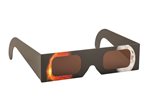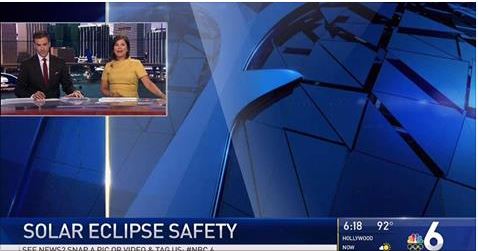What is a solar Eclipse?
On Monday, August 21, 2017, all of North America will be treated to an eclipse of the sun. A partial solar eclipse, where the moon covers part of the sun’s disk, will be visible in South Florida.
Is it safe to look at the sun during an eclipse?
It is NOT safe to look at a partially eclipsed sun. The UV rays emitted from the sun during this phenomenon produce thousands of rays of sunlight, which can cause serious, permanent eye damage and even blindness.
What happens to the eyes if exposed to the UV rays during a solar eclipse?
The retina, which houses the eyes light-sensing cells that make vision possible, can become damaged when exposed to harmful UV rays during a solar eclipse. This damage is often painless so people may not realize they’re damaging their vision.
Supervise children at all times during this period and keep them indoors, if possible.
Is it safe to view the eclipse if wearing sunglasses?
Wearing a standard pair of sunglasses does NOT protect the eyes from the harmful UV rays exposed during a solar eclipse.
 Only special-purpose protective solar filters, often referred to as “eclipse glasses” that must meet ISO 12312-2 international standards, may be used to view a solar eclipse. Be sure to check the list of authorized retailers by visiting Eclipse2017.nasa.gov/safety. Only those approved retailers have approved solar gear that provide 100% protection against harmful UV and infrared light.
Only special-purpose protective solar filters, often referred to as “eclipse glasses” that must meet ISO 12312-2 international standards, may be used to view a solar eclipse. Be sure to check the list of authorized retailers by visiting Eclipse2017.nasa.gov/safety. Only those approved retailers have approved solar gear that provide 100% protection against harmful UV and infrared light.
Be wary of vendors on social media claiming to sell eclipse glasses who are not on the official NASA list.

Click the video to view the news report
For more information
For more information on the solar eclipse please visit Eclipse2017.nasa.gov/safety.
Reviewed by: Dr. Zenia Aguilera and Dr. Roberto Warman, pediatric ophthalmologists at Nicklaus Children's Hospital.